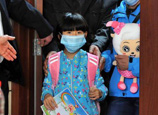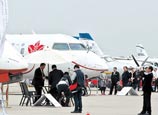
 |
Subsidies
To ease the heavy burden on breeders, the regional governments of Shanghai and Zhejiang province have offered limited subsidies.
The Shanghai government issued a one-off subsidy on April 10, paying certified poultry breeders to keep their birds at their farms. Breeders will be paid 3 yuan for each egg chicken, 2 yuan for each meat chicken, 2 yuan for each pigeon and 0.20 yuan for each quail.
Meanwhile, on Wednesday, Zhejiang's provincial government announced that it will provide a similar level of subsidy to local large-scale poultry breeders.
"It is essential for the government to offer insurance support for the breeders, not only in terms of buying related insurance products, but also setting up a stabilization fund to insulate the breeders from huge losses if outbreaks occur in the future," said Wang Xujin, a professor at the insurance department of the school of economics at Beijing Technology and Business University, according to the news website Caixin.
Wang urged the government to launch a poultry storage system and subsidy measures to avoid sudden price fluctuations for poultry products.
However, there is a certain level of optimism in the industry.
Tony's Farm, an organic foodstuff supplier in Shanghai, has started selling organic vegetables and fruit with a wide profit margin to offset the losses incurred by the temporary closure of its poultry department.
"Supplies of organic vegetables such as garlic, onions, ginger and tomatoes that boost human immune and resistance systems have been increased as a replacement for poultry products," said Wang Shuai, the PR manager at Tony's Farm, which has launched a wider range of prepackaged vegetables to meet the rising demand from customers.
In addition, certain farmers are looking forward to making profits soon from the rebound in demands for poultry products.
"I would like to buy more chicks in August, if that's possible," said Sun Hongrong, 39, who runs a family farm in a suburb in Shanghai's Songjiang district.
Normally, Sun raises 1,000 free-range chicks in his paddy fields every year. All are priced at around 120 yuan, higher than normal, because they eat rice kernels rather than chicken feed.
"Hopefully, the bird flu will disappear as temperatures rise. By that time, the demand for chicken will rise again, too, so I expect to see prices surge because of the short supply," said Sun.

















 Beijing's first H7N9 patient discharged
Beijing's first H7N9 patient discharged


![]()
